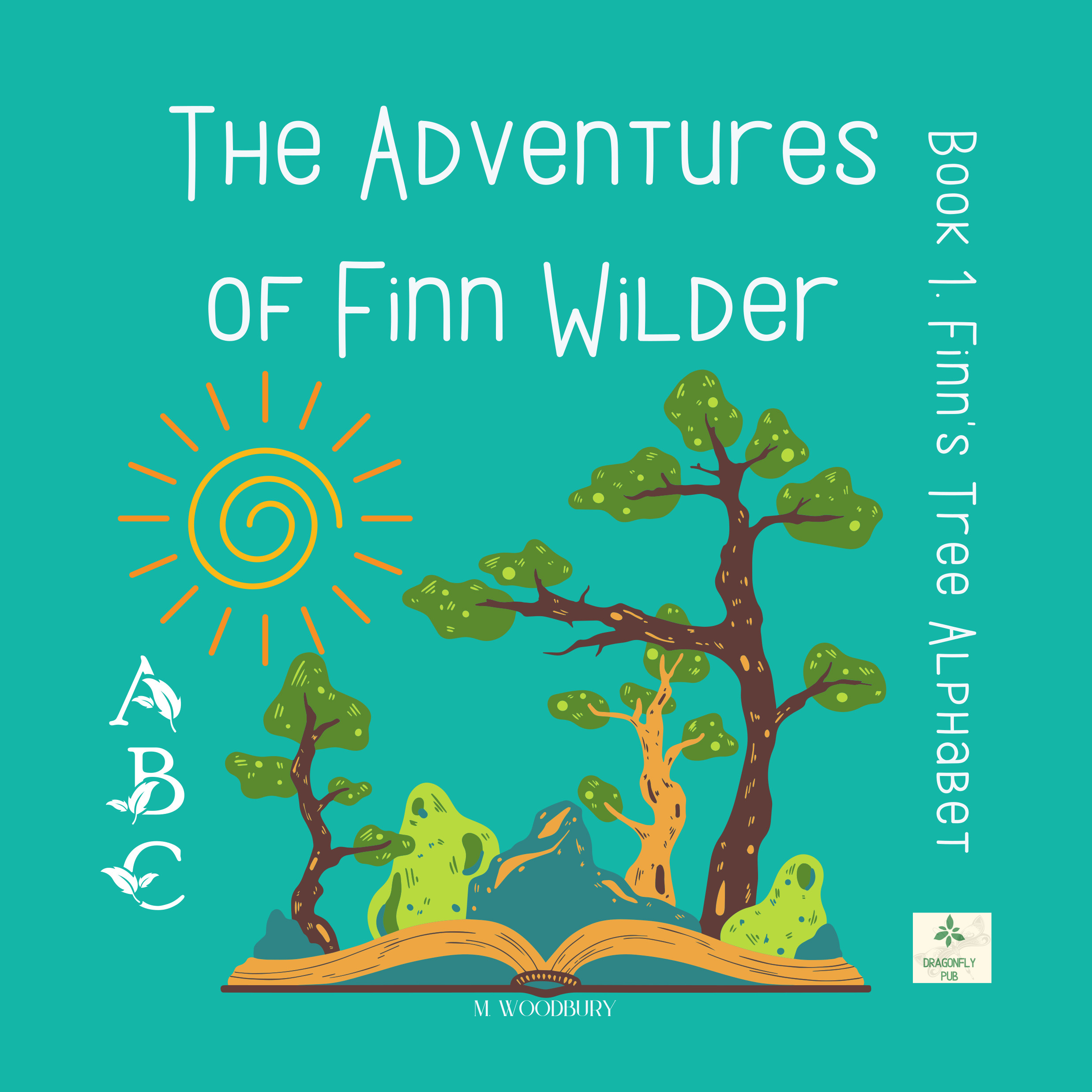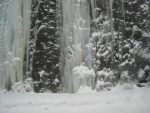I’ve had a great three weeks of running regularly again, but my legs have been quite sore–just catching up to where I was before I broke my toe and before a snowy winter happened. I also had a wonderful weekend and participated in Vancouver’s March for Science.
But it was at an event after the march that I also experienced a lovely time, sharing ideas with others about climate change and storytelling. The event was held at the West Vancouver Memorial Library, and it was in the planning for quite a while. I remember author Claudia Casper telling me about it last year. I am going to use this little chance to plug her novel The Mercy Journals, which just won the Philip K. Dick award for Science Fiction. The panel moderator, Deborah Hanford, who is the executive director for ACT: Adaption to Climate Change Team, is an amazing person who has a lot of information to share, and she is completely engaging as a speaker.
The panel was small and intimate–the crowd not too large. I also met Isaac Yuen, who runs Eko Stories, and it was great to put a face to a social media name. The more interaction I have to people working in this field, the more I am drawn to it.
I’ll try to summarize some of our ideas, since the panel was not filmed.
Q: Which works better: doom and gloom or cheer?
A: We realize that dystopia brings to fiction tension and conflict, which makes for good drama and storytelling. It’s also somewhat a reflection of where we’re headed as far as climate change goes. A happy unicorn story where nothing happens and everything is perfect is boring. On the other hand, building hope in a dystopian framework shows the positive outcomes of dealing with an otherwise gloomy future. Many readers just cannot stomach gloomy dystopia. I brought up my interview with Cory Doctorow, where he talked about his viewpoint–that in times of disaster, it is shown that people, in general, are helpful to each other and work toward a better world. If you build these people into even the direst of dystopian novel, your novel starts to edge toward utopian. It becomes an uplift rather than a takedown.
Q. This one from a member of the audience, who liked to read nonfiction and facts rather than fiction: how can fiction be shaped to be realistic?
A. Claudia came up with a great answer. “Nonfiction is like water, and fiction is like gravy.” I also pointed out that all fiction about climate change, whether literary or genre, is often based upon factual models of climate change–for instance, what we know about sea level rise, melting glaciers, vector-borne diseases, droughts, wildfires, extreme weather, extinctions, etc.–all these things may be dropped into fiction, around which an imaginary world spins and suspends us.
I also brought up what Nathaniel Rich wrote in the New York Times about writing the end. His novel Odds Against Tomorrow was close to reality. He said:
On Oct. 30 last year, after staying up late to edit the final proofs of my novel, I woke to discover it had already been adapted for television — by CNN, MSNBC, Fox News and every other channel that had interrupted its programming to show images of a flooded New York City. Nature had taken a few liberties with the adaptation. In my novel, New York is hit by Tammy, a Category 3 hurricane; Hurricane Sandy was a Category 1. But the aftermath was largely the same: massive destruction, displacement and despair, modern catastrophe’s dismal triad. I can’t take credit for having seen it coming.
I read that part aloud at the event, because fiction has always imitated life, even in dystopia, where in the back of our minds we think: that isn’t happening yet. But it is, and it has. As much as it will.
Q. Can fiction really change people’s minds?
A. There were a few approaches to answering this question. One is that when we read fiction, sometimes it speaks to us, the reader, at a level in which our heart gets involved. That emotional reaction is important. The type of fiction that has impact does so without necessarily the intent of the author. If the author writes a story that the reader likes, it can change the reader, in a small or large way. Claudia pointed out the novel The Road as an example. Not about climate change (I read recently how the novel was inspired by a dream about a natural event, not a human-made one), the novel still looked at ecological devastation in a dystopian world. Yet, as Casper pointed out, the reason why she liked the novel so much was because what it is really about is a father’s love for his son and for the continuation of life. I also pointed out that novels such as To Kill a Mockingbird and Uncle Tom’s Cabin also had a profound influence on people.
Another thing we touched upon, and which occurs to me now, is that, climate change is not a “narrative”; it is a reality, and writing about that in fiction simply reflects reality. To build a narrative in fiction about climate change may come across as too preachy. Narratives are fabricated, whereas scientific realities simply exist.
Q. Does a strong connection to nature when young help readers appreciate eco-fiction later?
A. The answer was overwhelmingly yes. All of us on the panel had great memories of growing up–mostly without cell phones, for they become popular after our childhoods. We spent great times outside, and that’s where our best memories are. In the same vein, I think the younger, the more impressionable. Our family was always outdoors, and I read voraciously. One thing (outdoors) was strong in the books I read. I remember the story of Bambi, or the Island of the Blue Dolphins. Even the Little House on the Prairie books were set close to nature, with Laura’s adventures being outdoors more than indoors.
Q. What were our favorite fictions?
A. I remember Claudia talking about The Road and another couple novels. I meant to talk more about weird fiction and some of Jeff VanderMeer’s work, but just ran out of time. I mentioned Barbara Kingsolver’s Flight Behavior and a couple other novels. Sometimes we readers have particular if not peculiar types of fiction we really like, and it may be dependent on what we’re in the mood for. But I will never forget reading Flight Behavior, because it came during a point in my life where my father had just died and where, in the next few years, I began to really miss the stability of family he had built. In his honor, we did a road trip down South to visit graves, old houses, and of course relatives who were still alive. When reading Flight Behavior, I very much felt like the main character Dellarobia, because, like her, a transition had happened at some vague point in the past where I no longer felt comfortable in the company of conservative community I was brought up in. But then when Dad died, I missed my childhood, for memories of it represented his health, and I sunk myself into the past, remembering the loving aunts and uncles and grandparents and cousins–and I missed them with a very palpable regret and wished I could blink back in time. It turns out, as young adults, we began to grow apart to an extent because we were starting new families and also became more geographically further apart–and then when my mammaw and pappaw died, there were not as many reunions.
But the point of it all is that in Kingsolver’s novel, I relived my experience with various people I had grown up with in real life. Her novel represented past coming to terms with present and old ideologies coming to terms with scientific reality. It was about a community changing and looking at ecological importance. It seemed to be a story about my life, I guess. So in that sense, you can see that I didn’t enjoy Flight Behavior because it was about climate change. I enjoyed the story because, to me, it was a great story I could personally relate to on an emotional level–and that it included climate change made it that much more important to me.
***
I mentioned at the panel that a weird thing happened on our road trip down South. There used to be a mountain behind my mammaw and pappaw’s house when I was very young. We would climb the Appalachian ranges, up and down, for hours on end. When we went back there in 2012, the mountain was simply gone…the old holler now paved, and lined with modern houses. My grandparents’ house was still there, but the great mountain behind was gone–we assume for coal removal.
A few nights before this talk, I called my cousin, whose husband had died unexpectedly in January this year. We realized we were tired of seeing each other only at funerals (her mother and dad both died in the past few years as well, and my dad in 2009). So she and another cousin are going to try very hard to come to the Midwest this summer when we are there, and I’m really looking forward to it. Just talking with her for two hours, and feeling snug with her southern accent, and giggling about funny times from our youth–really got me grounded. Only she and my other two cousins, and maybe my brother, would ever share some of these memories.
The feature picture is from a run last week, when the sun came out and the reflection of sky, creek, and willow together was very peaceful.








Hi Mary,
Lovely post, as usual. I’m a bit puzzled by the comment “Nonfiction is like water, and fiction is like gravy.” This could be interpreted in several ways. What did it mean to you?
I need to start running again! 🙂
Thanks, Jessica!
I think her point may have been that fiction is richer (tasting?) than water. Of course, to me, I think water is purer and greater 🙂